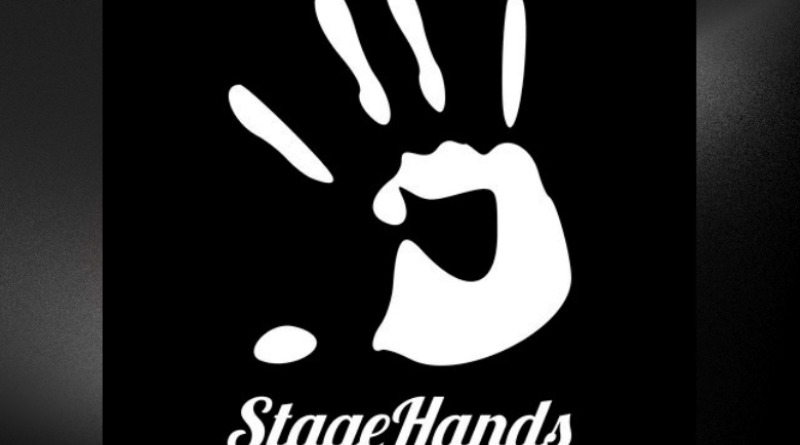Rules of a Stagehand – Pt. 1

Being a stagehand in a venue or on a site is hard work, but it is where most people in the live entertainment industry start out in their careers. This is for various reasons of course. Some like the hands-on experience before applying to larger roles, some like the networking and shadowing opportunities it can bring, and some like to get an overall knowledge before deciding a specialty.
Whatever the reason may be, there is also some understanding that stagehands do the majority of the grunt work. This is why it is considered a starting point, or closing point, to one’s career in the industry. Whether you are just beginning your career, or having it come to a stopping point, these are tips from long-standing stagehands who have been around the block and seen many shows come and go. These rules of a stagehand (pt. 1) can be carried from any country, and help you make your stagehand experience last until you decide your next steps.
 Early is on time. On time is late. Late is unacceptable.
Early is on time. On time is late. Late is unacceptable.
As is universal in the majority of life, timing is everything. If a show is supposed to be arriving at 9 AM for their load in, that means the latest you arrive is 8:45. It is widely understood that venue techs show up at least an hour before the touring company comes in. This is mostly for the pre-rig and to ensure everything that is not necessary is out of the way for the incoming company.
Clean up after yourself.
The touring company, even one-nighters, will talk to others about your venue and how your staff are. If it’s not clean, they’ll notice.
Safety.
If you don’t feel safe doing something, perhaps it needs to be looked at again, or asked to go over the plan again. Everyone deserves to feel safe, and that includes having safety measures in place. Ultimately it’s everyone’s own personal responsibility. Your own personal safety comes first and those around you and that you are responsible for, and what the company wants you to be safe about comes after. Have a fight with your boss about what the company wants you to do later.
Lift ON “Three”!
Everyone at some point in their lives has heard this phrase: “We lift on three, ready?” That means lift ON THREE, not after! Even if you prefer to lift after three, communicate that and be sure everyone knows when to lift. If you are the one counting, make sure everyone understands this.
 Your phone stays in your pocket or your bag.
Your phone stays in your pocket or your bag.
Unless you are the one on the ladder, tallescope, or genie lift, your phone stays in your pocket. Scroll through whatever social media later. If you are on the ladder/tallescope/genie lift thing then remember to empty your pockets.
If you’re not sure, ask.
There is always something to be learnt, especially from the new people you get to meet as a stagehand. As a general rule, it’s good to obtain as much information as possible, especially in an area you are wanting to learn.
What is said on comms, needs to stay on comms.
This isn’t a gossip rag, this is a tight knit family who has to spend a lot (and I do mean A LOT) of time together. If someone is venting a bit on the comms, keep your mouth closed and stay out of it. Unfortunately, comms are not private channels and if you leave your headset anyone can hear what is being said. Be mindful of what you say, because you never really know who is listening.
 Own your mistakes.
Own your mistakes.
Everyone makes a mistake. Especially after long hours, very little sleep, being underpaid, and trying to accommodate for the impossible. Just own up to them when they happen and move on.
Keep your resume to yourself unless asked.
If you are at the start of your career, you’re trying to advance and get to where you want to be. The touring companies get that, everyone who is working with them was once at that point. If they like your work, and your attitude, they’ll inquire more about you from either you or your peers. We all want to network, but people don’t want to hear what a great Lighting Designer you are when you’re there to be crew.
Pull the tape first, then the cable.
We tape down practically everything. Hell, sometimes I swear people tape things down just for fun, not because it’s actually necessary. But when it comes time to unplug and pull everything out of the venue and off the stage, do not be that person that thinks it will be funny to rip the cable up and “try” to rip the tape up all in one go. Best case scenario, you’ll have pieces of tape to collect anyway. Worst case scenario, you rip something out of a plug and something busts leaving you to pay for it.
This article was originally published on TheatreArtLife.com.
Editor's Note: At StageLync, an international platform for the performing arts, we celebrate the diversity of our writers' backgrounds. We recognize and support their choice to use either American or British English in their articles, respecting their individual preferences and origins. This policy allows us to embrace a wide range of linguistic expressions, enriching our content and reflecting the global nature of our community.
🎧 Join us on the StageLync Podcast for inspiring stories from the world of performing arts! Tune in to hear from the creative minds who bring magic to life, both onstage and behind the scenes. 🎙️ 👉 Listen now!
